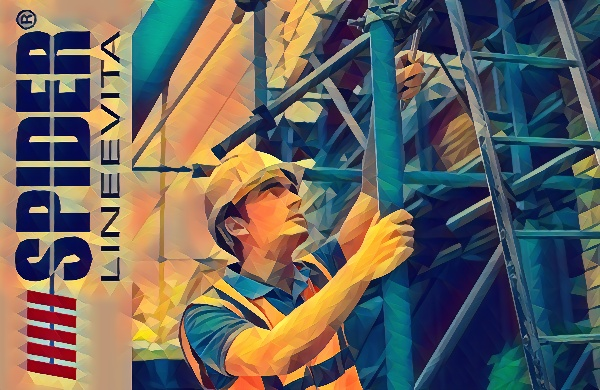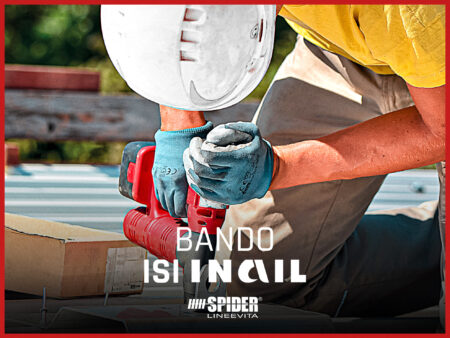
For those who work in the construction sector, you will probably know that when we talk about “temporary works”, although they have aspects that affect structural safety, they are those intended to perform only the functions required of them during construction activities, and not permanently. although they have aspects that affect structural safety, they are those intended to perform only the functions required of them during worksite activities, and not permanently. Inail, with “Safety design on the construction site” drawn up by the Department of Technological Innovations and Safety of Installations, Products and Anthropic Settlements, has formulated guidelines for schemes for drafting the PSC and POS and an algorithm for risk assessment.
The drafted states that provisional works are distinguished in:
service works: such as service bridges or decks made up of 5 cm planks, a toe board at least 30 cm high and bases resting on solid surfaces, not forgetting a maximum distance from the wall of 20 cm; walkways and gangways used to overcome and/or obstacles with structure characteristics mentioned in the Inail document mentioned earlier; and finally compartment covers and trapdoors. The openings left in the attics or work platforms must be surrounded by normal parapet and toe board or covered with firmly fixed planking of a strength not less than that of the walking surface of service bridges.
safety structures: these are those used to prevent things or persons from falling. These include scaffolding, i.e. galvanised iron structures fitted with wheels to allow the structure to be moved, mostly used by painters to redo an external or internal façade; Anti-fall nets; Cantilever bridges; Fixed metal scaffolding; Multidirectional scaffolding; Joint-tube scaffolding; Fixed scaffolding with bushes or pins; etc.
retaining structures: retaining structures are of a structural nature, as they counteract the tilting action of the ground and support water for both temporary and permanent works. We find gravity retaining structures (walls, gabions, crib walls) and reinforced concrete structures (corbelled walls, buttress walls and spurs); reinforced earth; bulkheads (sheet piles and diaphragms); support structures for excavations and trenches.
The document prepared by INAIL – “Fixed Scaffolding Technical Notebook” – provides information on the choice of scaffolding for a specific project. The aim of the Technical Notebooks for temporary or mobile sites is to increase the level of safety at temporary or mobile sites.
Section 7.1 of the document – “CHOICE”- specifies that an assessment of the risks to be eliminated, or rather reduced to zero, is fundamental for the choice of scaffolding to be adopted. The type of work to be carried out, its complexity, the extent and geometry of the work to be served must first be identified. Then the load classes, the construction elements of the scaffold itself and all the geometric and performance requirements listed in the user and maintenance manual are identified.
If you are in the process of making a choice of professional works and would like advice on products and possibilities, please ask our experts for help.
Translated with www.DeepL.com/Translator (free version)
 Agevolazioni
Agevolazioni